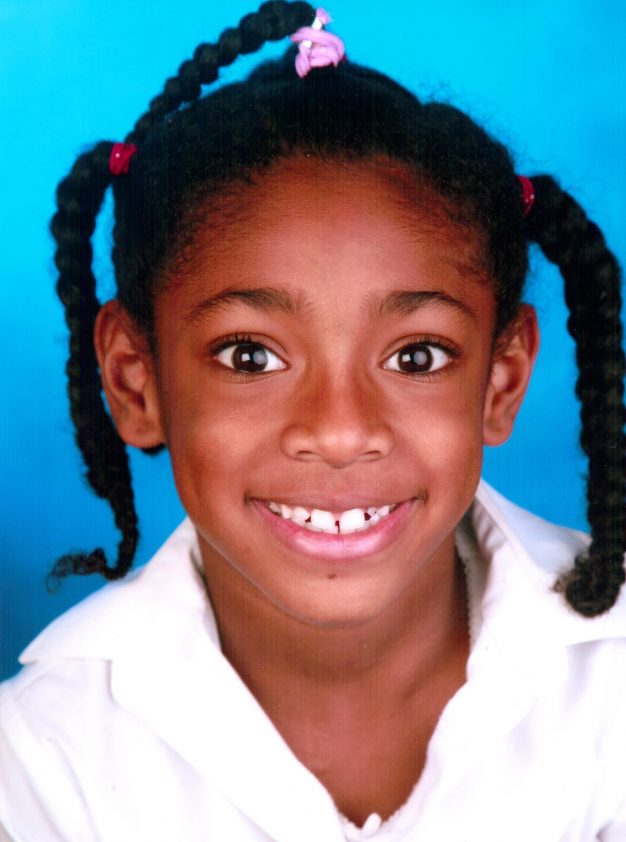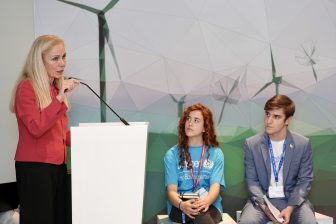
Air pollution and children – the ‘invisible killer in our midst’
A mother whose nine-year-old daughter died from air pollution exposure has delivered a powerful message to a global audience to be aware of the ‘invisible killer’ – toxic air.
Rosamund Adoo-Kissi-Debrah lost her daughter, Ella, in 2013, after Ella became the first legally recorded victim of illegal levels of pollution.
Rosamund, who has since become a powerful and influential campaigner for air quality and the campaign global against air pollution, spoke at the Urban95 Convening, part of the Bernard van Leer Foundation’s Urban95 programme, which takes a view of cities from a child’s perspective.
“We can survive two weeks without food, we can survive two days without water, but we can’t survive more than two minutes without breathing – it is fundamental, and we need to to think there are people who are constantly trying to breathe, so we take it for granted but it is a fundamental right – the same way water is, the same way food is, the same way shelter is ” she said.
Air pollution, says the foundation, is a global health emergency and young children are the most vulnerable. Polluted air causes long-lasting damage to babies and toddlers, as their brains and bodies are still developing. Inhaling a breath of air is the first public good everyone experiences when they are born. But around the world, 93 per cent of children are breathing polluted air every day.
The problem, unfortunately, is that all these pollutants are invisible – so we have an invisible killer in our midst
Even in the womb, children are not protected: maternal exposure to pollutants is almost as bad for a foetus as the mother smoking. Breathing air that is lower to the ground, young children are exposed to 30% more black carbon from car exhausts than adults.
Ella Kissi-Debrah, from south London, was one such child. She lived very close to the South Circular Road in Lewisham, one of London’s busiest roads. She was gradually exposed, over a period of years, to nitrogen dioxide and particulate matter in excess of European Union and World Health Organization approved levels.
She died on 15 February 2013, after an acute asthma attack, exacerbated by years of exposure to toxic fumes. An inquest heard that in the three years before her death, she had multiple seizures and was admitted to hospital 27 times. In December 2020, in a landmark case, a UK coroner listed ‘excessive air pollution’ as the official cause of death.
‘Importance of clean air for babies, toddler and caregivers’
It is cases like hers that inspired more than 500 experts and advocates to come together online recently for the Urban95 Convening 2021. They shared experiences and knowledge on what’s been termed ‘an invisible pandemic’, and the critical importance of clean air for babies, toddlers, children and caregivers in the world’s cities.
The foundation says that two global online gatherings were supplemented by local sessions in Peru, Brazil – accompanied by a report from the University of São Paulo – and India. Further sessions are planned in Jordan, Israel and the Netherlands.
In addition to Rosamund Adoo-Kissi-Debrah, there were various experts in public health and environmental issues, such as Carlos Dora, president of the International Society for Urban Health. Articulating a global response to air pollution, he said: “For quite a few years we have a lot of evidence, which is considered enough to take action. After 2005 we have much more evidence on heart disease and stroke, and much more evidence on brain function, including on early child development in cognition.”
Iyad Kheirbek, director of the Air Quality Program at C40 Cities, said: “There’s also significant value in engaging with local communities and collecting their own data, as well as in many parts of the world where there isn’t monitoring, collecting air pollution data can be an important entry point to capacity building and air quality management.”
Learn more about the event by using the hashtag #Urban95 across social media.




